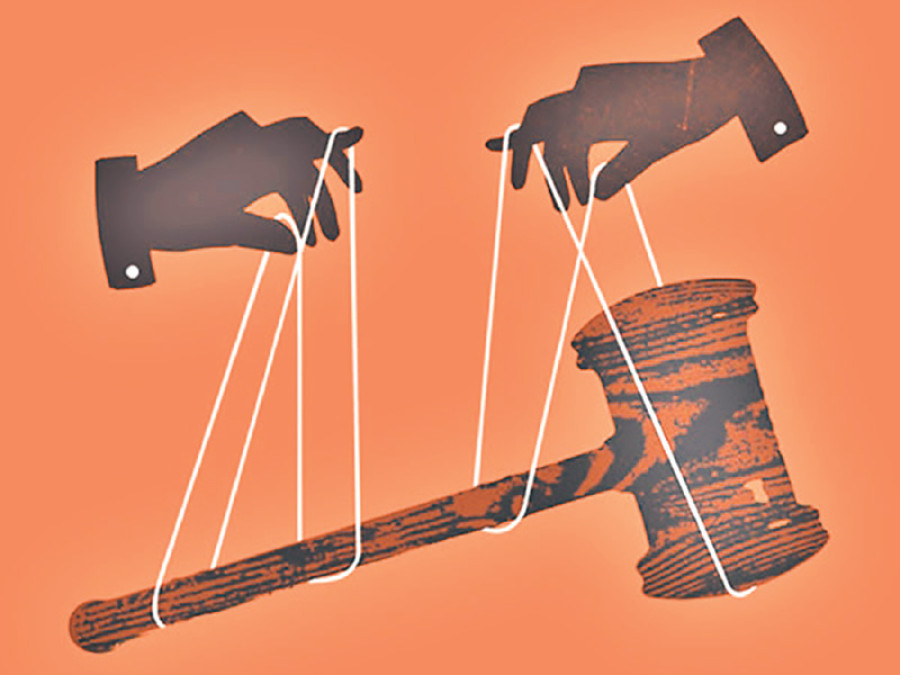Opinion
Racing against the clock
On February 10, the mandates of Nepal’s two truth commissions were extended for one year, the maximum time extension allowed under the law that created them, the Truth and Reconciliation Commission Act.
Aileen Thomson
On February 10, the mandates of Nepal’s two truth commissions were extended for one year, the maximum time extension allowed under the law that created them, the Truth and Reconciliation Commission Act. While this is a necessary step toward fulfilling the rights of conflict victims, this time span is not sufficient to complete the work that remains to be done.
At this point, all actors need to take stock of the Truth and Reconciliation Commission and the Commission for the Investigation on Enforced Disappeared Persons in regard to their place in the country’s political and human rights landscape. Realistic opportunities to pursue justice for victims of serious human rights violations must be identified.
The two commissions have been controversial since their inception and many aspects of their mandates have been struck down by the Supreme Court. Much of the debate about the commissions and the TRC Act centres on the power to recommend amnesty, including for serious violations of human rights. This provision has been the main cause for tension between the commissions and other bodies such as victims’ groups, civil society, and the international community.
Nepal is obligated to abide by ratified treaties that clearly prohibit amnesty for war crimes, crimes against humanity and genocide, and other serious violations of human rights under international law.
The Nepali Supreme Court recognised as much when it struck down the amnesty powers proposed in the TRC Act.
Truth and acknowledgement
International human rights bodies recognise the right of “victims and their representatives…to seek and obtain information on the causes leading to their victimisation and…to learn the truth in regard to these violations.” However, this right to the truth—like the right to reparation—is not dependent on the prosecution of perpetrators of conflict related crimes or human rights violation.
In Nepal, it is clear that victims do not simply want to know the truth about the violations they or their families suffered, or continue to suffer; victims also expect the state to officially and publicly acknowledge, document, and discuss the truth behind those violations. The large number of complaints registered with the two commissions demonstrates that victims hope—and expect—the commissions to play a role in fulfilling their right to the truth. These victims chose to engage with a process that, while flawed, provides many with their first opportunity to achieve a measure of justice in the form of acknowledgment, truth and reparation. Victims’ needs and choices should be heard and respected.
Moving forward in this last year, the commissions must provide truth and acknowledgment, including a public platform for victims to tell their stories through public hearings. They can recommend reparations and institutional reforms to prevent recurrence of abuses. Their reports should serve as a public record of the suffering of victims and the violations committed by both sides of the conflict.
Respect, not pity
The International Centre for Transitional Justice (ICTJ) believes that international actors should stand on the side of victims and engage with the commissions, criticising when appropriate and assisting where realistic opportunities exist to fulfil victims’ rights. This does not mean setting aside principles, for example in the case of amnesty for serious violations, but neither does it mean sacrificing other rights of victims through a narrow focus on criminal accountability.
ICTJ also calls on the commissions to ensure they carry out their work in a transparent, victim-centred way and have regular coordination with relevant stakeholders. This means consulting with victims throughout the process and treating them as participants worthy of respect, not subjects worthy of pity. It is crucial for commissioners to take an honest look at what is preventing them from building strong relationships with victims and civil society. Within the next year, the commissions have to recognise that these relationships will need to be repaired in order to ensure success.
Finally, ICTJ calls on the government of Nepal to amend the TRC Act in line with the Supreme Court rulings and to provide resources required for the commissions to carry out their work. The parties to the conflict agreed to the creation of these commissions 10 years ago, in the Comprehensive Peace Agreement. The commissions are a crucial opportunity for those in government to demonstrate a commitment to peace and justice, and to the vindication of victims’ rights.
In order for the commissions to accomplish their difficult tasks in the coming year, cooperation and engagement is needed among various stakeholders, who must ensure that their positions and actions support victims and their families in the fight for justice. They must work to create the most conducive environment to fulfil victims’ rights. The search for criminal accountability should not be abandoned, nor should it compromise the search for truth and reparation.
Thomson is Head of Office at ICTJ-Nepal




 9.6°C Kathmandu
9.6°C Kathmandu










